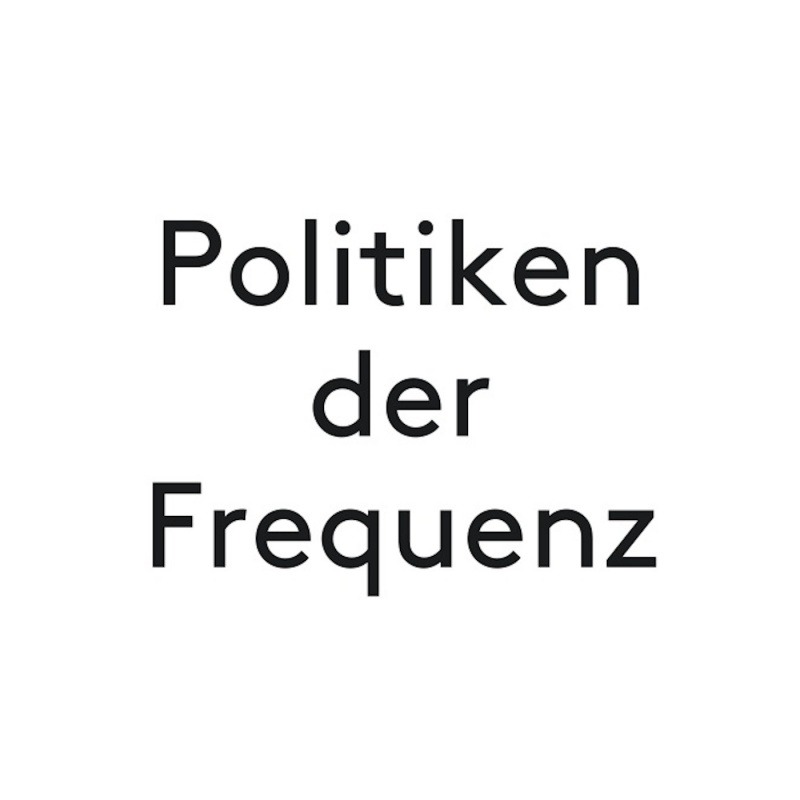Marcus Schmickler & Julian Rohrhuber: Politiken der Frequenz (Editions Mego/Tochnit Aleph)
While Marcus Schmickler may have most notably made a name for himself around the turn of the century with his laptop post-rock constructions as Pluramon, a project that graduated into full-on shoegaze territory with Julee Cruise on vocals ten years ago, his musical explorations under his birth name are perhaps more interesting. Whereas Pluramon evolved into something ostensibly pop-oriented, most of his recordings under his proper name have been challenging and, at times, downright severe. This collaboration with Julian Rohrhuber, Professor of Music Informatics and Media Theory at the Robert-Scumann Hochschule in Waldorf, is one of his most obtuse and fascinating releases to date. Translated as Politics of Frequency, the music herein is as severe and dare I say academic as its no doubt deliberately banal cover art. It’s the duo’s sonification of an unusual philosophy and agenda that asks numerous questions, but most basically at its core: “Is it possible to perceive changes in a society through changes in its music? Is it possible to understand contemporary music through its implicit relationship with money?”
Schmickler and Rohrhuber’s collaborations oscillate between detached, unusual auditory renderings of mathematical concepts, while a modulated, sinister monologue “chorus” reads aloud excerpts of the essay published in the album’s artwork. And yet despite the harrowing tone of the chorus, there is something fascinatingly arbitrary and almost playful in the ping-ponging and unpredictable electronic sounds that emanate. “Refrain Numbers Negation” bleeps and bloops while an almost goofy zipping lead is scattered across the stereo spectrum, lending it a sense of mischief that is eventually grounded by another monologue, while “aleph 0” is a wildly restless cascade of square tones and squiggles that underpins its boisterous chorus. It’s hard to do the sounds of this release full justice, though if any readers are acquainted with Rashad Becker’s album from 2013 or anything from Florian Hecker, then that is as good a place to loosely compare as any. Certainly one of the more interesting recordings to surface on Mego in some time, and far from casual listening, but rewarding in its uniqueness and deliberate point of view.
For more context, here is part of the duo’s press release for the album:
“Change, flexibility, and movement are considered desirable today, while the static, rigid, and unchanging tends to be met with reservation or is implicitly opposed. Movement, perhaps even chaotic movement, or some form of change of the change of the change, appears promising: it suggests the invention of the new, rather than the discovery of the already-there, it is taken as the core of the revolutionary, or at least of the progressive. The unchanging, then, is only a brittle ladder to be used and then thrown away, a dead tool that merely points to life, or even a conservative prison of standardization. By consequence, what seems to exist in movement and nothing more, indeed appears in a favorable light: sound.
Be that as it may, such a positive evaluation of the potential of change mirrors a contemporary economic understanding of change and/or growth, where it is precisely what constitutes value as such. For algorithmic trading, success means the appropriate bet on a trend, for the employer, flexibilization and casualization of labour. And even though the appropriation of change as surplus value implies the arrest of its movement, this capture is only an intermediate unproductive precondition of investment in the expected dynamical behaviour of free agents. The commenting chorus in Politiken der Frequenz (Politics of Frequency) is an attempt at exposing this mutual ideological support, by introducing a third element, namely the concept of number. A number and its properties can be considered either as an outcome of a dynamic process, like measurement or counting, or (and) as something that exists independently, and is a precondition necessary for such operations in the first place. From both perspectives, however, the numerical is outside the frame of variation, something unchanging and infinitely resistant. It is in this role that it can serve as a middle and common ground of sound and economy, excluded, but necessary as a mere tool applied to provide external stabilization. What if number is taken as an object of investigation instead, an object of sound, one of mathematics? Can there be an alternative to the eternalized value of change, an alternative to the false dialectics of movement and arrest? Certainly, drawing from the history of mathematics, a sonification of number brings to light something fundamentally different, namely its acoustic shimmer, its glint.“
Buy it: Editions Mego | Boomkat | iTunes | Amazon | Bleep


0 Comments